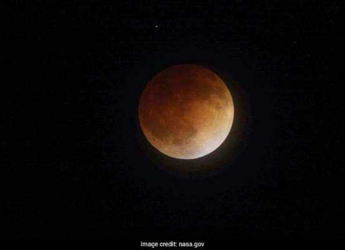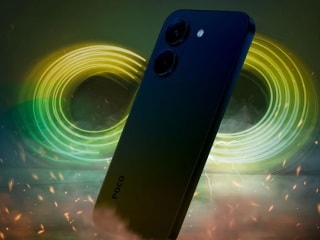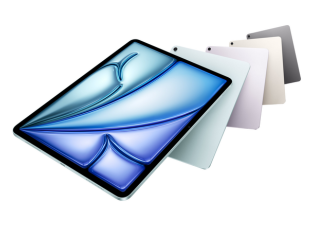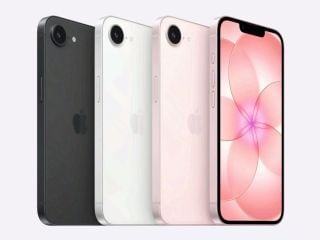- Home
- Telecom
- Telecom Features
- Jio, Airtel, Vodafone Plans, CES 2018, Samsung Galaxy A8 (2018)+ India Launch, and More News This Week
Jio, Airtel, Vodafone Plans, CES 2018, Samsung Galaxy A8 (2018)+ India Launch, and More News This Week

Reliance Jio continues to roll out new offers, with price cuts for its 1GB per day data plans. The 28 day plan has been cut from Rs. 199 to Rs. 149, while the 70 day plan has gone from Rs. 399 to Rs. 349. The Jio 459 and Jio 499 plans with validity of 84 and 91 days respectively, have dropped to Rs. 399 and Rs. 449. Jio also unveiled a bunch of data plans with 1.5GB data per day.
The new 1.5GB data per day plans are priced at Rs. 198, Rs. 398, Rs. 448, and Rs. 498. These are old the price points of the 1GB data per day plans, meaning consumers are essentially getting 50 percent more data at roughly the same price.
| Price | Validity | Total data (1.5GB/day) |
|---|---|---|
| Rs. 198 | 28 days | 42GB |
| Rs. 398 | 70 days | 105GB |
| Rs. 448 | 84 days | 126GB |
| Rs. 498 | 91 days | 136GB |
Airtel has a new Rs. 399 pack, competing with Jio's Rs. 398 plan. Under this, users get 1GB data per day, with a 70 day validity, along with unlimited calls, and 100 SMSes per day. Earlier, Airtel's Rs. 399 plan had a 28 day validity. Aside from this, Airtel also updated its Rs. 448 and Rs. 509 plans, raising the validity from 70 days to 82 days, and from 84 days to 91 days, respectively.
Aside from this, Airtel is also offering free Amazon Prime to select customers. This is only for customers on postpaid plans of Rs. 499 or above - customers can get a free 1 year subscription of Amazon Prime, on downloading the Airtel TV app. The offer is available only to Airtel postpaid customers on myInfinity plans priced Rs. 499 and above, and to V-Fiber broadband users on plans priced above Rs. 1,000. If you are already an Amazon Prime member, you can't avail this benefit to extend your membership.
With Jio and Airtel cutting prices, Vodafone responded by increasing the data and validity for its Rs. 458 and Rs. 509 plans. The Rs. 458 plan earlier offered 1GB a day for 70 days, and this has now been raised to 84 days. Meanwhile, the Rs. 509 Vodafone plan has been bumped from 84 days to 91 days. Both plans include unlimited (up to 250 minutes a day, 1,000 minutes a week) calls and free roaming, and 100 SMSes per day, along with access to the Vodafone Play app.
Who's Going to Fix India's Broadband Market?
BSNL has also increased the validity of its unlimited calling and data packs for prepaid customers, which range from Rs. 186 to Rs. 666. The largest of these gives validity for 129 days, while the Rs. 186 plan offers 28 days validity. The Rs. 349 and Rs. 429 packs are valid for 54 days and 81 days respectively. The Rs. 485 (90 days) and Rs. 666 packs come with 1.5GB data per day, while the smaller packs are good for 1GB per day.
Internationally, the big news of course was CES 2018, the annual tech event that's held in Las Vegas. If you like smartphones, CES is not the event for you though we did get the launch of two new smartphones from Sony, the Xperia XA2 and Xperia XA2 Ultra. Both phones are powered by the Snapdragon 630 processor - the key difference is that the Ultra is larger, with a dual-selfie camera setup. The Ultra also has more RAM, 4GB compared to 3GB on the XA2. Check out our first impression of the duo from the CES show floor.
Sony Xperia XA2, Xperia XA2 Ultra First Impressions
Vivo showcased the world's first in-display fingerprint scanning technology at CES 2018. This means that the fingerprint scanner that’s become a bit of a standard to unlock smartphones in recent years can be embedded under the display, instead of on a physical button on the front as has been the norm.
In turn, this will enable manufacturers to make smartphones with truly bezel-less displays without needing to relegate the fingerprint scanner to the back or the side of the smartphone. Vivo hasn’t officially launched a smartphone with this technology yet - the unit on display at CES was a modified version of an existing phone, the Vivo X20 Plus - but we can expect that to happen soon.
There were also a number of interesting laptop launches. Dell refreshed its Latitude 5000 and 7000 series, and launched a new portable SSD at CES 2018. All the new notebooks come with up to the eighth-generation Intel Core i7 processor option. Aside from this, it launched the new Dell XPS 15 2-in-1, which has an Intel chip, and integrated AMD graphics. It runs on the newly-announced 8th generation Intel Core CPUs with integrated Radeon RX Vega M graphics from AMD.
Intel announced the new line of Core CPUs with Radeon Vega graphics processors just ahead of this at CES 2018. Aside from Dell, HP is also launching 2-in-1 laptops with these processors, and Intel has also launched a new line of its own compact NUC PCs featuring the new processors and aimed at gamers.
We Tried Nvidia's Game Streaming Service on a Cheap Laptop and Here's What We Think
Apart from these, the Asus ROG Strik SKT T1 Hero Edition gaming laptop was also launched at CES 2018, along with other products from the company. The company unveiled various laptops and other gaming gear, and also showed the NovaGo - one of the world's first Windows on Snapdragon laptops - announced by Microsoft late last year - that is powered by a Qualcomm Snapdragon 835 processor. Lenovo meanwhile launched the ARM powered Miix 630 2-in-1, powered by the Qualcomm Snapdragon 835 SoC.
The WPA 3 Wi-Fi security protocol was also announced at CES, and promises encryption for public hotspots. It will improve upon WPA2, and addresses the KRACK vulnerability, and should begin rolling out in 2018. More specific timeframes will only be known once hardware and software vendors release their own plans.
TVs are always a big theme at CES, and the ones that got the most attention this year included a modular TV from Samsung that can become as large as 146-inches. No surprise then Samsung is calling it The Wall. The other interesting TV - still a prototype, mind you - was a 65-inch OLED from LG that can be rolled up and tucked away when not in use.
There were also two important announcements from the world of VR - for one, HTC unveiled the Vive Pro and Wireless Vive Adaptor. One of the stumbling blocks for VR - apart from the high cost, and limited content - has been that it has remained a tethered experience if you're expecting any degree of fidelity. That can hamper the overall experience, and the adaptor is a big step forward on that front. HTC isn't the only one working on this either.
Also at CES, Facebook and Xiaomi together announced the Oculus Go standalone VR headset, which should also make it easier for people to adopt the technology at the lower end of the market. Lenovo also launched the Mirage Solo standalone Daydream VR headset, along with its new Mirage VR180 camera, which can take 180-degree images, as the name suggests.
For more CES 2018 coverage, visit our CES Hub and explore all the big announcements from Las Vegas.
We also got some leaks about Samsung's upcoming flagship, the Samsung Galaxy S9. A leaked retail box image appears to have given away the specifications of the phone, mentioning a "super speed" camera, 5.8-inch Quad HD+ Super AMOLED display, and 64GB memory, 4GB RAM. Samsung's Mobile Communications Business President DJ Koh also revealed the launch plan at CES 2018 - Koh said that the phone will be unveiled at MWC 2018 next month. Koh also reportedly mention the presence of a foldable phone by the South Korean giant sometime next year. Other leaks meanwhile suggest that the Galaxy S9 will common in two RAM and storage variants, and there's a rumoured 512GB Galaxy S9+ variant .
Meanwhile, in India, Samsung launched the Galaxy A8+ (2018) this week at an event in New Delhi. The smartphone's highlights are its Super AMOLED Infinity Display, 6GB of RAM, IP68 dust and water resistance, Samsung Pay and Bixby support, as well as dual front cameras. The smartphone was first announced in December, before being made available in Vietnam. Its price has been set at Rs. 32,990, an it has a 6-inch FHD+ display, with an octa-core SoC and 64GB storage.
Aside from this, the Samsung Galaxy J2 Pro (2018) has been launched in Vietnam, priced at VND 3,290,000, which translates to roughly Rs. 9,200. The budget smartphone has a 5-inch qHD display, a 1.5GHz quad-core processor, 1.5GB of RAM, and 16GB storage.
Samsung Galaxy A8+ (2018) First Impressions
The Smartron t.phone P was also launched in India this week. The phone, which is priced at Rs. 7,999, has a big 5000mAh battery, and comes with 1TB of free cloud storage on the company's t.cloud service. It will go on sale from January 17, via Flipkart. The phone has a quad-core Snapdragon 435 SoC, with 32GB storage, 3GB of RAM, a 13-megapixel rear camera, and a 5-megapixel front camera. The battery also supports a fast-charging technology that enables a full-day charge in 90 minutes of time, and it can also be used to charge other drives via OTG support.
Cashbacks, Rewards, and the Growth of Google Tez Payment App in India
iVoomi also launched two new phones, the iVoomi i1 and iVoomi i1s - priced at Rs. 5,999 and Rs. 7,499 respectively. Both smartphones are exclusive to Flipkart. The iVoomi i1 and i1s are all but identical, with only two differences: the iVoomi i1 sports 2GB of RAM and 16GB inbuilt storage, while the iVoomi i1s sports 3GB of RAM and 32GB inbuilt storage. Both phones have a 1.4GHz quad core processor, a dual-rear camera setup with a 13-megapixel primary sensor alongside a 2-megapixel sensor, as well as an 8-megapixel selfie camera. The phones have a 3000mAh battery.
WhatsApp was in the news again this week with a new feature being tested for group chats, which would allow one administrator to demote or dismiss other administrators. The WhatsApp Beta for Android now also allows users to switch from voice to video while in the middle of a call. The big news about the messaging platform though was a potential security risk highlighted by researchers - a flaw that could allow strangers to add themselves to group chats, and eavesdrop on ongoing conversations.
What Does a Smartphone Mean to a Refugee?
Last week, Alphabet's Google and other security researchers disclosed two major chip flaws, one called Meltdown affecting only Intel chips and one called Spectre, which left computing devices vulnerable to hackers. Later, it was found that AMD chips are also vulnerable to both variants. Now, Apple has released iOS and macOS updates to mitigate Spectre vulnerabilities, and also said also said that there were no known instances of hackers taking advantage of the flaw. Intel's CEO says the chip flaw damage has been contained by the industry, and that 90 percent of chips will be patched soon.
It's not been all steady progress though. For one, Intel said that Meltdown and Spectre Patches can cause reboot problems in old chips. Microsoft has suspended its AMD Spectre and Meltdown path rollout after complaints of unbeatable PCs, pointing a finger towards AMD for providing inaccurate documentation. The company also says that security patches are slowing down PCs and servers.
At the end of the week, Microsoft also announced a partnership with Signal, to provide end-to-end encryption in Skype. Private Conversations is currently available for Skype Insiders, and an invite needs to be sent to contacts to initiate Private Conversations. The encrypted chats can only be sent to other users on the same Insider build.
Finally, we had a Nintendo Direct Mini event this week, with a number of games announced for the Switch. Several Wii U games are coming to the console, but the biggest highlights were Mario Tennis Aces, which brings a story mode last seen on the Game Boy Advance; and a remastered version of Dark Souls.
Get your daily dose of tech news, reviews, and insights, in under 80 characters on Gadgets 360 Turbo. Connect with fellow tech lovers on our Forum. Follow us on X, Facebook, WhatsApp, Threads and Google News for instant updates. Catch all the action on our YouTube channel.
Related Stories
- Samsung Galaxy Unpacked 2026
- iPhone 17 Pro Max
- ChatGPT
- iOS 26
- Laptop Under 50000
- Smartwatch Under 10000
- Apple Vision Pro
- Oneplus 12
- OnePlus Nord CE 3 Lite 5G
- iPhone 13
- Xiaomi 14 Pro
- Oppo Find N3
- Tecno Spark Go (2023)
- Realme V30
- Best Phones Under 25000
- Samsung Galaxy S24 Series
- Cryptocurrency
- iQoo 12
- Samsung Galaxy S24 Ultra
- Giottus
- Samsung Galaxy Z Flip 5
- Apple 'Scary Fast'
- Housefull 5
- GoPro Hero 12 Black Review
- Invincible Season 2
- JioGlass
- HD Ready TV
- Latest Mobile Phones
- Compare Phones
- Apple iPhone 17e
- AI+ Pulse 2
- Motorola Razr Fold
- Honor Magic V6
- Leica Leitzphone
- Samsung Galaxy S26+
- Samsung Galaxy S26 Ultra
- Samsung Galaxy S26
- Asus TUF Gaming A14 (2026)
- Asus ProArt GoPro Edition
- Apple iPad Air 13-Inch (2026) Wi-Fi + Cellular
- Apple iPad Air 13-Inch (2026) Wi-Fi
- Huawei Watch GT Runner 2
- Amazfit Active 3 Premium
- Xiaomi QLED TV X Pro 75
- Haier H5E Series
- Asus ROG Ally
- Nintendo Switch Lite
- Haier 1.6 Ton 5 Star Inverter Split AC (HSU19G-MZAID5BN-INV)
- Haier 1.6 Ton 5 Star Inverter Split AC (HSU19G-MZAIM5BN-INV)

















